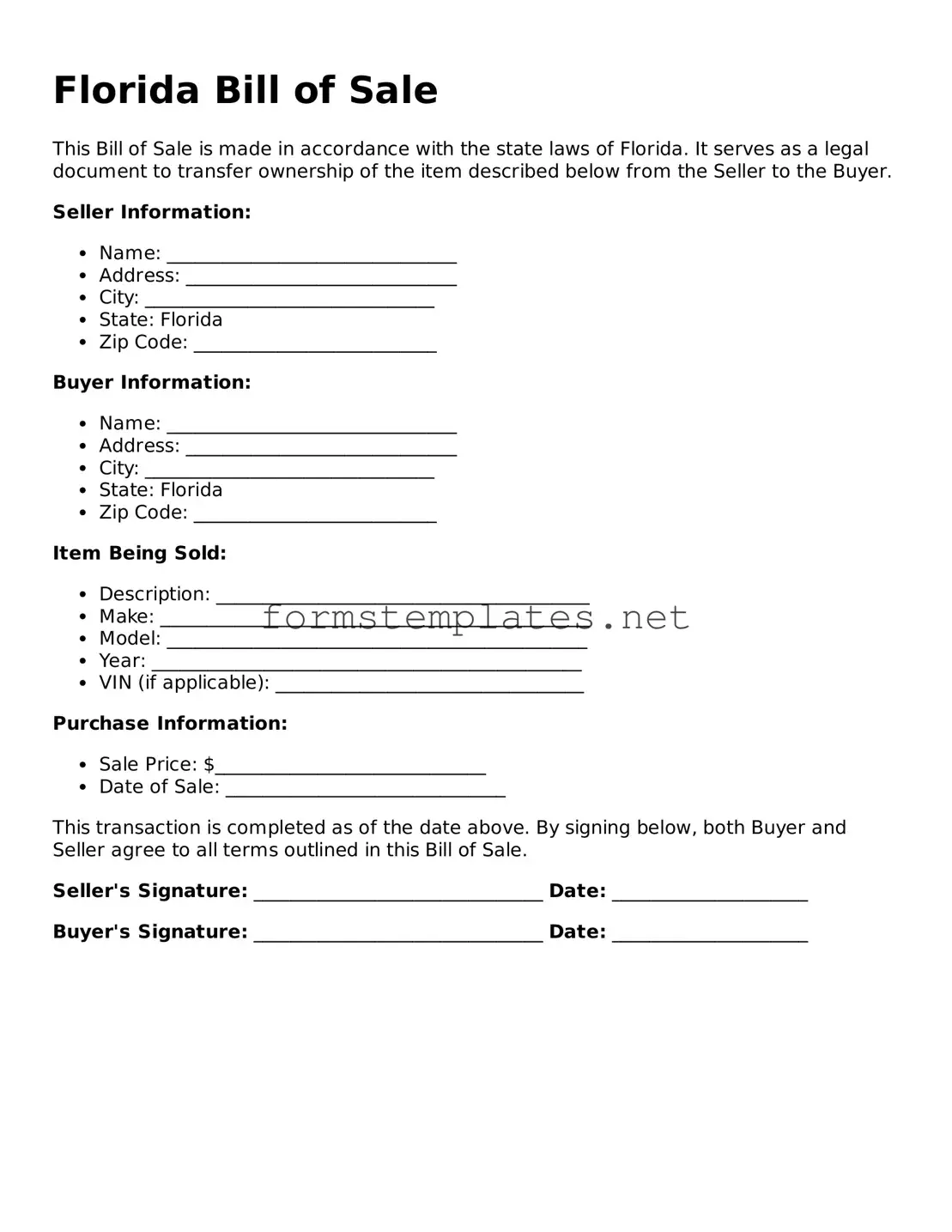Attorney-Approved Florida Bill of Sale Template
The Florida Bill of Sale form is a legal document that facilitates the transfer of ownership of personal property from one individual to another. This form serves as proof of the transaction, outlining the details of the sale and protecting the interests of both the buyer and seller. Understanding its components can simplify the process and ensure a smooth transfer of assets.
Open Editor Now

Attorney-Approved Florida Bill of Sale Template
Open Editor Now

Open Editor Now
or
⇓ PDF Form
Your form still needs attention
Finalize Bill of Sale online — simple edits, saving, and download.